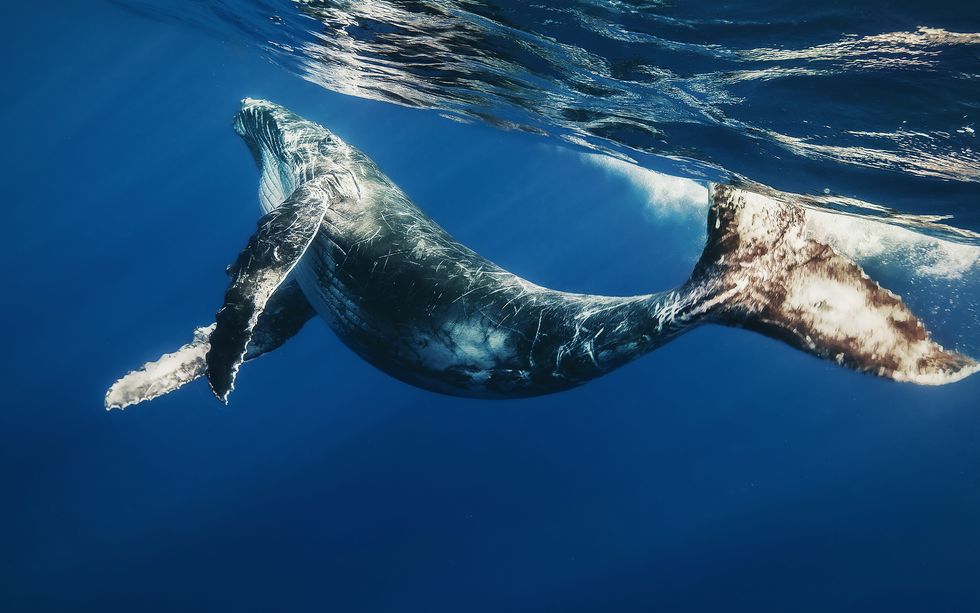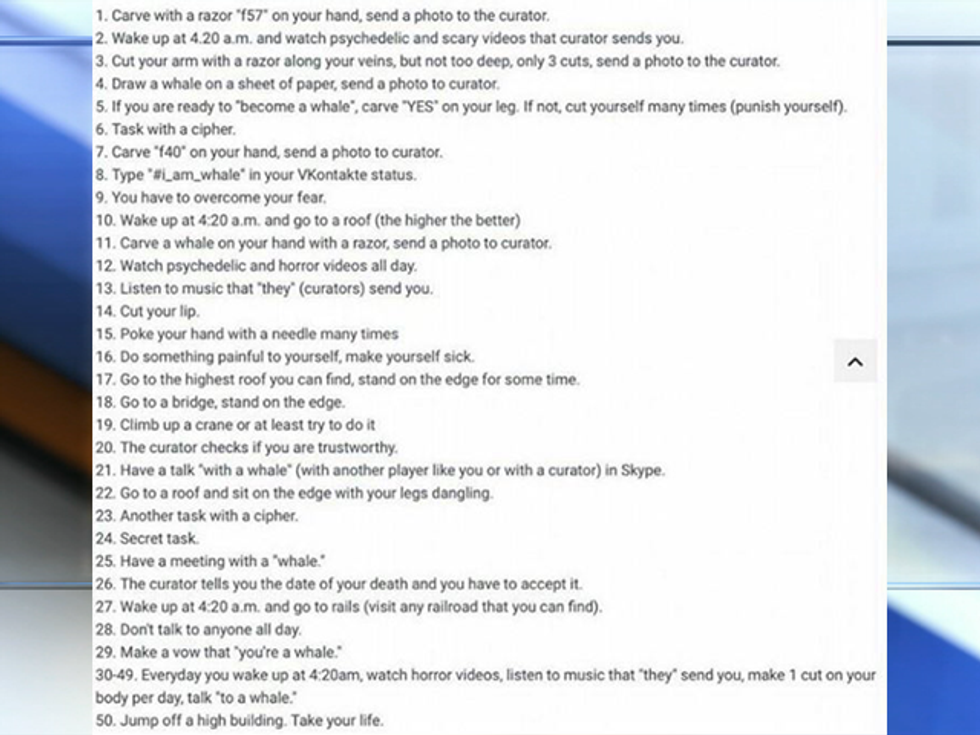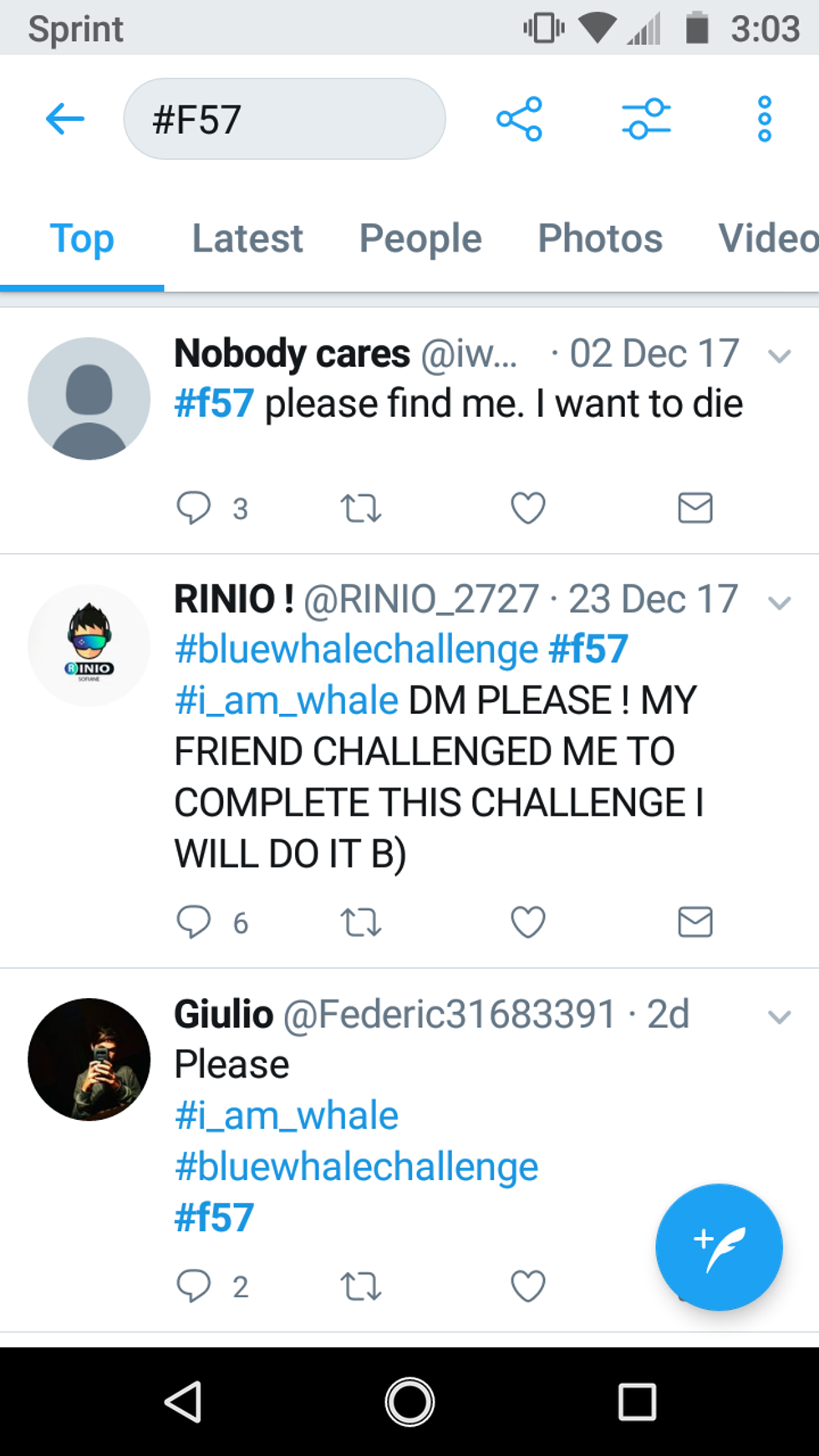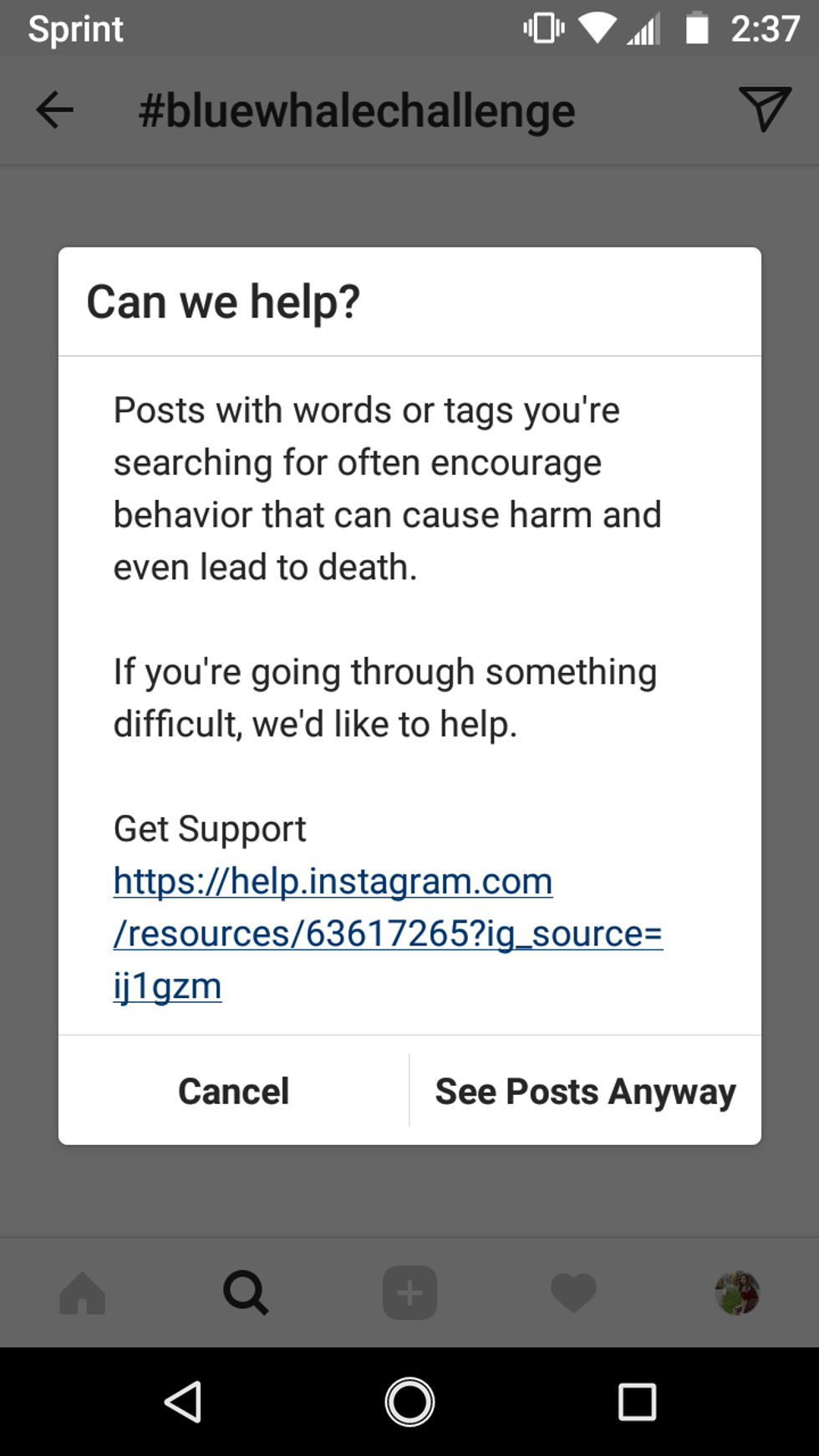In the age of social media, it isn't uncommon to come across trends like the "Ice Bucket Challenge" or the "Mannequin Challenge." We often dismiss these as a fad, sometimes even partaking in the fun.
One challenge, however, managed to stay under the radar-- it's only evidence from first hand experience and personal stories from friends and family. The Blue Whale Challenge is a social media "game" that encourages children and teens to take their own lives.
The challenge (named for blue whales' tendency to beach themselves to die) first emerged in Russia in 2016. Philipp Budeikin, 21, claimed to have invented the game in 2013 in order to "cleanse society by pushing persons to suicide whom he deemed as having no value." He selected people he believed were weak and easy to manipulate. Budeikin had been expelled from his university beforehand, and said he invented the game for fun. In May 2016, he pled guilty to leading 17 teenage girls to take their lives.
How then, does the game work?
Game administrators -- or "curators" -- would reach out to potential participants of the deadly game through Instagram. First, they would ask their target if they wished to play a game. They would then explain the rules, threatening to find, injure and kill the target's family if they didn't follow directions.
Their targets would often be as young as eleven years old, an age group still struggling to figure out their own identity. This group of children were typically already suffering from depression or anxiety; they felt alone and misunderstood in the world. These curators offered a connection in their world.
The "game" consists of 50 challenges over the course of 50 games. They range from using a razor to carve "F57," waking up at 4:20a.m. to watch movies the curators send participants, to ultimately committing suicide. Each challenge requires photographic proof to the game administrator.
The problem with this game is the lack of evidence. Melissa Patton, mother to a 12-year-old girl who was drawn into the game, stumbled across pictures of the challenges in her "deleted" album during a phone search. She couldn't believe her daughter was playing such a deadly game. The only evidence police and parents have of this dangerous trend are the first-hand accounts of survivors and the photo evidence in their phones.
There is no evidence of conversations with these curators due to the conversations being deleted. The only real way to see what a curator says and exactly how the game is structured is to either a) be a part of the game or b) look on the dark web, neither of which is advisable.
Hashtags such as "#F57", "#bluewhalechallenge", "#i_am_whale", and "#curatorfindme" reveal those begging to play the game, hoping to catch the eye of a curator.
These disturbing messages are only the beginning of this tragic game. Pictures show people posting evidence of them fulfilling the challenges, begging for entry into the game.Fortunately, social media platform Instagram has stepped up, offering support for its users experiencing depression and suicidal thoughts. The following message popped up after I searched "#bluewhalechallenge".
If you are feeling depressed or full of anxiety, please know you aren't alone in the world. You are worthy, your life is important and you were put on this earth for a reason. Maybe you haven't discovered that reason yet, but that's part of the adventure of life!
Talk to someone; you can reach out to me if you want an ear. Just remember there are people in the world who do and will want to know you. This moment marks the rest of your life -- and it should be full!
You can call the National Suicide Prevention Hotline at 1-800-273-8255, or chat with them online if you feel more comfortable writing.
Choose to live, if not for yourself, then for someone else until you can live for yourself.
You are worth it.



















